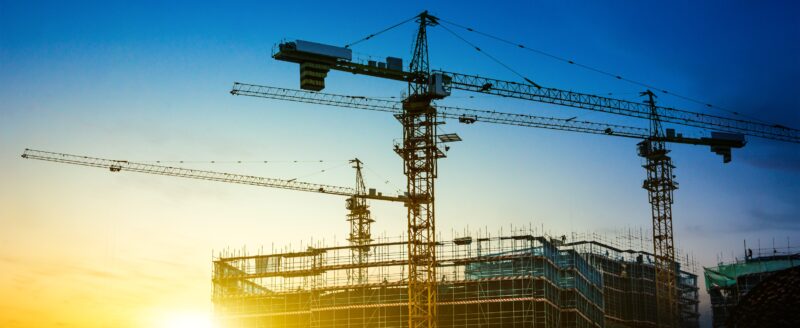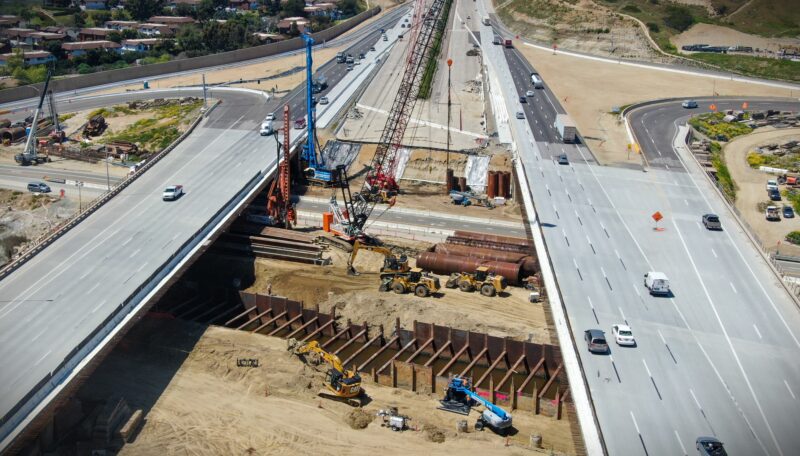Construction management is a complex and dynamic field that plays a crucial role in bringing building projects to fruition. Whether you’re a seasoned construction professional or someone just starting to explore this industry, understanding the fundamentals of construction management is essential. In this comprehensive guide, we’ll take you through the basics of construction management, from project initiation to completion.
Introduction
What is Construction Management?
Construction management is the process of planning, coordinating, and overseeing construction projects from inception to completion. It involves managing various resources, including human, financial, and material, to ensure that projects are completed on time, within budget, and to the required quality standards.
The Importance of Construction Management
Effective construction management is vital for the success of any building project. It helps mitigate risks, control costs, and ensure that the final result aligns with the owner’s vision. A skilled construction manager acts as the project’s quarterback, orchestrating various teams and tasks to bring the project to fruition.
Key Responsibilities of a Construction Manager
Construction managers are responsible for a wide range of tasks, including:
- Project Planning: Developing comprehensive project plans, including schedules, budgets, and resource allocation.
- Coordination: Overseeing subcontractors, suppliers, and construction crews to ensure smooth operations.
- Quality Control: Ensuring that work meets quality standards and regulatory requirements.
- Risk Management: Identifying and mitigating potential risks and issues that may arise during construction.
- Communication: Maintaining clear communication with stakeholders, including owners, architects, engineers, and regulatory authorities.
- Safety: Ensuring a safe working environment for all personnel on the construction site.
Now that we have a basic understanding of construction management, let’s dive into the various phases of a construction project.
Pre-Construction Phase
Project Initiation
The construction management process begins with project initiation. During this phase, the project’s purpose, scope, and objectives are defined. Key tasks include:
- Identifying project stakeholders and their roles.
- Conducting a feasibility study to assess the project’s viability.
- Developing a preliminary project budget.
- Drafting a project charter that outlines the project’s goals and constraints.
Feasibility Studies
Before committing to a construction project, it’s essential to conduct feasibility studies. These studies assess factors such as market demand, site conditions, regulatory requirements, and financial viability. Feasibility studies help project stakeholders make informed decisions about whether to proceed with the project.
Budgeting and Cost Estimation
Accurate budgeting is critical for project success. Construction managers work with estimators to determine the project’s cost, considering factors like materials, labor, equipment, and other overheads. A well-defined budget serves as a roadmap for cost control throughout the project.
Site Selection and Acquisition
Selecting the right site for a construction project is crucial. Construction managers collaborate with real estate professionals to identify suitable locations and negotiate land acquisition. Site selection involves evaluating factors like accessibility, utilities, zoning, and environmental impact.
Permitting and Regulatory Compliance
Compliance with local, state, and federal regulations is a fundamental aspect of construction management. Construction managers are responsible for obtaining the necessary permits and approvals. They must also ensure that the project adheres to all applicable building codes and environmental regulations.
Planning and Design
Architectural and Engineering Design
During the planning and design phase, architects and engineers create detailed drawings and specifications for the project. These documents serve as the foundation for construction activities. Construction managers collaborate closely with design professionals to ensure that the design aligns with the project’s goals and budget.
Creating Project Plans and Schedules
Project planning involves developing comprehensive schedules that outline the sequence of construction activities. Construction managers use scheduling software to allocate resources, set milestones, and establish timelines. Effective scheduling is critical for keeping the project on track.
Procurement Strategy
Construction managers are responsible for procuring materials, equipment, and subcontractor services. They must develop a procurement strategy that considers factors like cost, quality, and delivery schedules. Effective procurement ensures that the project stays within budget and meets quality standards.
Risk Assessment and Mitigation
Identifying and managing risks is an ongoing process in construction management. Construction managers conduct risk assessments to anticipate potential challenges and develop mitigation plans. These plans help prevent costly delays and disruptions during construction.
Construction Phase
Project Mobilization
Once the planning and design phase is complete, the construction phase begins with project mobilization. This involves setting up the construction site, establishing safety protocols, and mobilizing the workforce and equipment. Construction managers ensure that everything is in place to start construction activities.
Resource Allocation
Efficient resource allocation is crucial to meet project milestones. Construction managers coordinate the allocation of labor, equipment, and materials to various tasks. They must also monitor resource usage to prevent overruns or shortages.
Quality Control and Assurance
Maintaining quality standards is a top priority in construction management. Construction managers implement quality control processes to ensure that work meets specified requirements. This includes regular inspections, testing, and adherence to industry best practices.
Health and Safety Management
Safety on the construction site is paramount. Construction managers are responsible for creating and enforcing safety protocols to protect workers and prevent accidents. They conduct safety training, inspections, and audits to maintain a safe work environment.
Communication and Reporting
Clear communication is essential throughout the construction phase. Construction managers facilitate regular meetings with stakeholders to provide updates on project progress. They also generate reports that detail project status, budget expenditures, and any issues that need attention.
Project Execution and Monitoring
Progress Tracking
Construction managers closely monitor project progress to ensure that work is on schedule and within budget. They use project management software to track tasks, timelines, and resource allocation. If delays or issues arise, construction managers take action to address them promptly.
Issue Resolution
Construction projects often encounter unexpected challenges. Construction managers play a critical role in resolving issues by coordinating with stakeholders, revising schedules, and adjusting resources as needed. Effective issue resolution helps keep the project on track.
Change Management
Changes to the project scope or design are common in construction. Construction managers must carefully manage these changes by assessing their impact on the schedule and budget. They work with stakeholders to make informed decisions about whether to proceed with changes.
Stakeholder Management
Construction projects involve multiple stakeholders, including owners, architects, engineers, subcontractors, and regulatory authorities. Construction managers facilitate effective communication and collaboration among these parties to ensure that everyone’s needs and expectations are met.
Cost Control
Controlling costs is a continuous process in construction management. Construction managers compare actual expenditures to the budget and take corrective actions if necessary. They also review and approve invoices, negotiate change orders, and seek cost-saving opportunities.
Project Closeout
Final Inspection and Punch List
As construction nears completion, a final inspection is conducted to ensure that all work meets quality standards. A punch list is created, detailing any remaining tasks or deficiencies that need to be addressed before the project is considered finished.
Documentation and Record-Keeping
Thorough documentation is essential for project closeout. Construction managers maintain records of all project-related documents, including contracts, permits, change orders, and warranties. These documents provide a historical record of the project’s lifecycle.
Handover to the Owner
Upon project completion, the construction manager facilitates the handover of the building to the owner. This includes providing all necessary documentation, training on systems and maintenance, and addressing any outstanding issues.
Post-Construction Evaluation
After the project is handed over to the owner, construction managers conduct a post-construction evaluation. This involves reviewing the project’s performance, identifying lessons learned, and documenting areas for improvement in future projects.
Emerging Trends in Construction Management
The field of construction management is constantly evolving, driven by technological advancements, sustainability concerns, and efficiency improvements. Here are some of the emerging trends in construction management:
Technology Integration
The use of technology, such as Building Information Modeling (BIM), construction management software, drones, and IoT devices, is becoming increasingly prevalent in construction management. These tools enhance project planning, communication, and data analysis.
Sustainable Construction Practices
Sustainability is a growing focus in construction. Construction managers are implementing green building practices, such as energy-efficient design, renewable materials, and waste reduction, to reduce the environmental impact of projects.
Lean Construction Principles
Lean construction principles emphasize efficiency and waste reduction. Construction managers are adopting lean practices to streamline processes, minimize delays, and optimize resource utilization.
Building Information Modeling (BIM)
BIM is a digital representation of a building’s physical and functional characteristics. It allows construction managers to visualize and simulate the entire project before construction begins, reducing errors and enhancing collaboration.
Challenges in Construction Management
Despite its many benefits, construction management also comes with challenges. Some of the common challenges include:
Cost Overruns and Budgeting Issues
Cost overruns can significantly impact project profitability. Construction managers must closely monitor expenses and proactively manage cost risks.
Delays and Scheduling Problems
Delays can lead to increased costs and frustration for stakeholders. Effective scheduling and proactive issue resolution are essential to prevent and mitigate delays.
Safety Concerns
Construction sites can be hazardous environments. Ensuring the safety of workers and visitors requires vigilant management of safety protocols and training.
Legal and Regulatory Challenges
Navigating complex regulatory requirements and legal issues can be daunting. Construction managers must stay informed about local laws and regulations and ensure compliance.
Building a Career in Construction Management
If you’re interested in pursuing a career in construction management, here are some key steps to consider:
Educational Requirements
Many construction managers hold bachelor’s degrees in construction management, civil engineering, or related fields. Some also pursue master’s degrees for advanced positions.
Skills and Qualities of a Successful Construction Manager
Successful construction managers possess a combination of technical, leadership, and communication skills. Key qualities include problem-solving, attention to detail, and the ability to work under pressure.
Professional Certifications
Obtaining relevant certifications can enhance your career prospects. Some common certifications for construction managers include the Certified Construction Manager (CCM) and the Project Management Professional (PMP) credential.
Conclusion
Construction management is a multifaceted discipline that requires a deep understanding of project planning, execution, and control. By mastering the principles and practices outlined in this guide, you’ll be better equipped to navigate the challenges and opportunities in the construction industry. Whether you’re a seasoned professional or just beginning your journey, the world of construction management offers a rewarding and dynamic career path. Stay updated on emerging trends, continue to develop your skills, and embrace the ever-evolving landscape of construction management for a successful and fulfilling career.
Remember, construction management is not just about building structures; at its core, it’s about people management, effective planning, efficient execution, and unwavering commitment to quality and safety.












